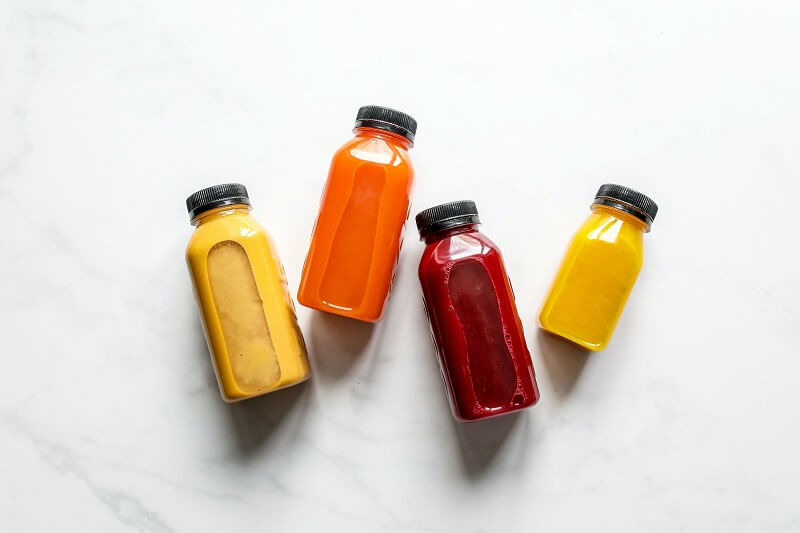In our quest for better health and wellness, we often turn to various dietary trends and wellness practices. One such trend that has gained popularity in recent years is juicing for health. Juicing involves extracting the liquid content from fruits and vegetables, providing a concentrated source of vitamins, minerals, and antioxidants. Juicing not only allows for a higher intake of these nutrients than one would typically consume in a whole fruit or vegetable form but also offers a quicker absorption rate into the bloodstream. It’s a practice particularly embraced by those looking to detoxify their system, improve digestion, and boost their daily energy levels in a natural and refreshing way.
The Art of Juicing
Juicing is not a new concept. For centuries, people have turned to the liquid gold found in fruits and vegetables to harness their nutritional power. The process typically involves using a juicer or a blender to extract the juice from fresh produce, leaving behind the fibrous pulp. This juice is a concentrated source of essential nutrients, making it a convenient way to increase your daily intake of vitamins and minerals. One of the key benefits of juicing is its ability to provide a quick and easy source of hydration. With the majority of our bodies composed of water, staying adequately hydrated is crucial for maintaining overall health. Juicing can be a refreshing and tasty way to meet your daily fluid needs, especially when combined with water-rich ingredients like cucumbers or watermelon.
The Detoxification Debate
Detoxification is often cited as one of the primary reasons individuals take up juicing, with many advocates claiming that it supports the body’s natural detox processes. The liver, kidneys, and skin are organically designed to eliminate toxins, and the influx of nutrients from juice can aid these organs in functioning more efficiently. However, it is important to note that scientific evidence supporting the idea of juice-based detoxification diets is limited.
Nonetheless, incorporating a variety of juices into one’s diet can contribute to better health by keeping your intake of fruits and vegetables diverse and abundant. Juicing advocates suggest that a temporary shift to juice-based consumption can prompt individuals to make more health-conscious choices long-term. It’s a ritual that can reset taste preferences, reducing cravings for sugar and processed foods by acclimating the palate to natural sweetness and flavors. You should speak with a health professional to determine if this is the best choice for your dietary and health needs.
The Antioxidant Advantage
Juicing can be a potent way to increase your antioxidant intake. Antioxidants play a critical role in protecting the body from oxidative stress, which can damage cells and contribute to chronic diseases. A juice blend rich in berries, leafy greens, and citrus fruits can provide a high dose of these protective compounds. Regular consumption of antioxidant-packed juices might contribute to improved immune function and overall better health. As with any nutritional supplement, it is best to obtain antioxidants from a variety of sources to ensure a well-rounded approach to wellness.
Incorporating Juicing Into Your Life
Adopting juicing as a part of your daily diet doesn’t have to be overwhelming. Start with incorporating one glass of freshly squeezed juice to complement your breakfast or as a mid-day energy booster. Balance is key, so opt for a variety of fruits and vegetables to cover a broad spectrum of nutrients. For instance, the benefits of fresh celery juice are widely extolled. It’s packed with antioxidants that can help fight inflammation and improve your digestion. Pairing it with other juices like beetroot or carrot can amplify the nutritional value.
To make it easier to stick with your juicing habit, prepare juice batches in advance and store them properly to retain maximum nutrition and flavor. Also, integrating vegetables with lower sugar content, like spinach or cucumbers, can help manage calorie intake while still providing a refreshing taste. Remember, too much of a good thing can have its downsides—moderation is the key to success, especially when it comes to fruits with high sugar content.
Conclusion
Juicing offers a way to enhance your nutritional intake with a variety of vitamins, minerals, and antioxidants found naturally in fruits and vegetables. By incorporating it into a balanced diet, you can reap the benefits of increased hydration, improved digestion, and an overall boost in energy. It’s a flexible practice that allows for creativity and personalization to suit individual health goals and taste preferences. As with any dietary change, moderation and mindfulness are key to reaping the positive outcomes without overdoing it. Ultimately, the power of juicing for health lies in its simplicity and the pure goodness it delivers with every glass.





